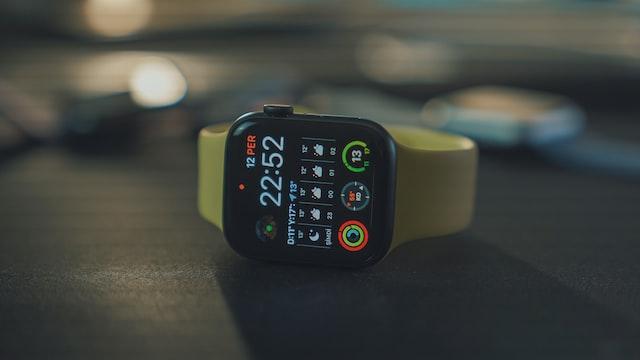Smartwatches can be used to track your health and fitness. They are excellent in the health department.
These smartwatches can be used to measure many health metrics. You can set different health goals on it and they will track your daily fitness goals.
Smartwatches are a great way to keep active and healthy. It allows me to track your running, swimming, and other health metrics such as heart rate, SpO2, sleep, stress score, and more.
Smartwatch Features to Track Your Overall Health
These smartwatch features can track your overall health.
1- Tests your heart rate
Smartwatches provide the most convenient method to measure your heartbeat. They are affordable, don’t take up much space, and have long battery life.
The best part is that fitness trackers can be worn for long periods to precisely measure your heart rate.
You can monitor heart rate using a Garmin, Apple Watch, Google Watch, Garmin, or any other tracker, whether you’re asleep, doing normal daily activities, or exercising. These data are then presented to you in an easy-to-understand format.
Smartwatches and fitness trackers use optical technology to detect your pulse. Your tracker uses optical technology to send light into your skin and then reads the light back.
You can also use the Apple Watch to generate a PDF containing your heart rhythm, which you can send to your doctor.
2- Take a look at your Sleep Score
Getting enough sleep each night is essential to allow our bodies to reset and have enough energy to tackle the next day.
The smartwatch’s sleep tracking feature tracks our sleep through various sensors. A smartwatch’s sleep monitor can also take into account many other factors.
It can track a few of these sleep metrics.
1. Sleep Quality: This is how you measure the quality of your sleep. The number of sleep interruptions and other information that a sleep tracker can provide is a measure of the quality of your sleep.
2. Sleep Duration: The sleep tracker will record when you fell asleep and when you woke up. It helps you to measure how long you were asleep.
3. Sleep Tracking: A Smartwatch can also measure our sleep phases, including rapid and slow eye movements. What are the stages of a normal human’s sleep cycle? Let’s take a look at it in more detail below.
- a. Light Sleep – This phase is when one wakes up at the slightest sound.
- b. REM Sleep – In this stage, your body relaxes, switching between light and deeper sleep.
- c. Deep Sleep- This stage is crucial as it allows your body to relax and process your thoughts and is when most physical recovery occurs.
3- Smartwatch measures Stress Score
Smartwatches are making great strides in monitoring stress levels. Fitbit, Garmin, and Google are all involved.
Stress has a negative impact on our lives and health. This is why mindfulness, guided breathing, and stress scores are becoming so important.
Wearables are now equipped with stress detection and coping tools. It’s not about mental well-being.
Wearables also use these physiological measurements to provide insight into the stress levels caused by exercise.
This allows individuals to gain a better understanding of the strain and stress that their body is putting forth, which could have an impact on future workouts.
4- Blood Pressure
The long-awaited capability to track blood pressure on smartwatches has been available for some time. Technology to make this happen seems to be in development. Users may find it more important to add a blood pressure monitor to smartwatches.
People with high blood pressure (hypertension) or other issues may find it helpful to have more options to take their blood pressure home.
5- Take ECG
Samsung and Apple have introduced the ECG app to their smartwatches. This is a huge plus for heart patients.
An ECG technology in smartwatches uses LEDs positioned against the skin to measure blood flow and heart rate.
The sensors collect the data, and then algorithms use it to determine your heart rhythm. The smartwatch records these measurements and sends an alert if it detects an irregular rhythm.
It’s quite different from the ECG technology used in clinics, so you might be skeptical about whether the tiny watch’s sophisticated enough to tell you if you are in AFib. Dr. Amine highly praises these devices.









